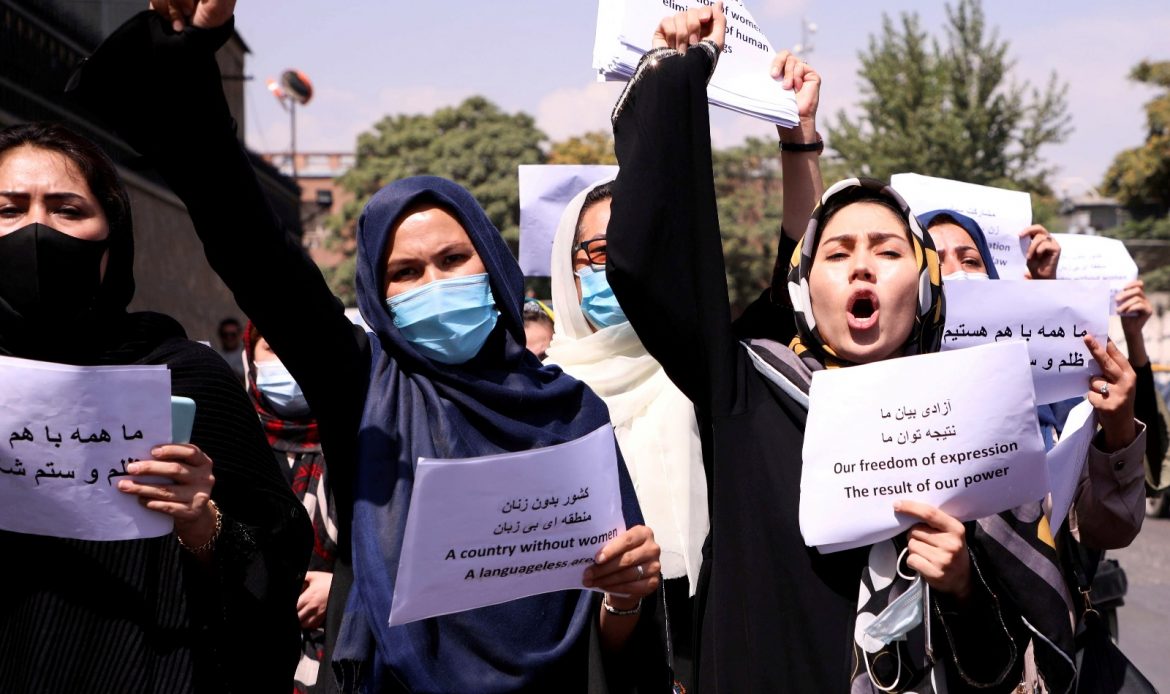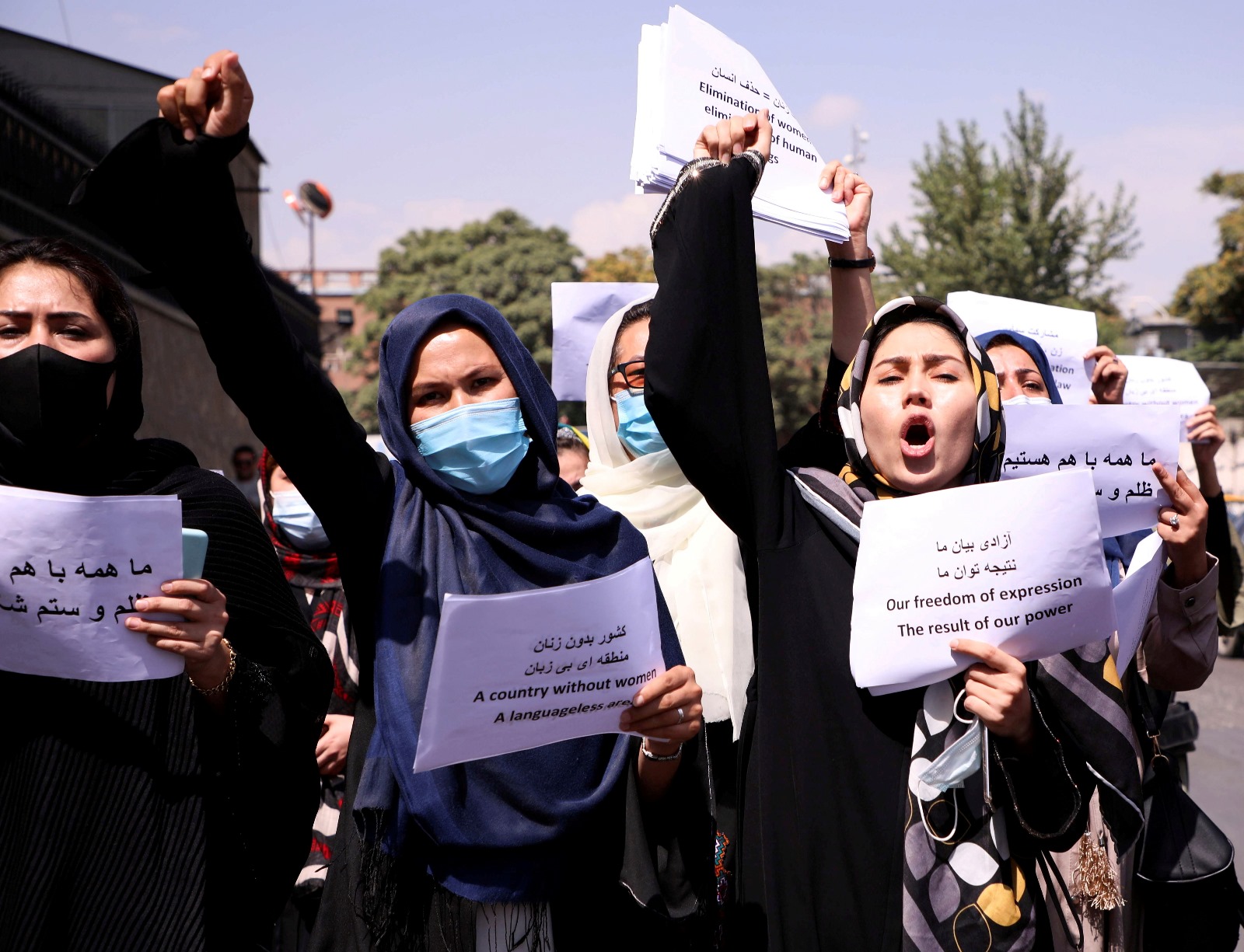
As we observe the 16 Days of Activism this year, it is essential to highlight the escalating violence faced by women in Afghanistan under Taliban rule. Femena has spoken directly with women in the country to bring forth this dispatch, aiming to elevate and share their daily struggles, revealing the extent of the violence and abuse they endure regularly. This dispatch serves as a call to action, emphasizing the urgent need for support and intervention to alleviate the challenges faced by Afghan women.
***
The Taliban’s hatred and brutality towards women are documented and starkly evident. In their prior rule during the 90s, they executed women in sports stadiums and enforced severe restrictions, prohibiting education, work, and even resorting to lashing for minor infractions like wearing sandals and revealing their feet. After the US invasion and the overthrow of the Taliban government in 2001, Afghan women began rebuilding their lives with relative freedom, though it came at a heavy price.
The Taliban’s violence against women persisted even after their government was ousted. They targeted girls’ schools, poisoned schoolgirls, and ruthlessly killed women politicians, journalists, activists, policewomen, and others. The list of women killed by the Taliban during the 20 years of the US invasion is extensive and includes prominent figures such as Safia Ama Jan, the women’s affairs director in Kandahar advocating for women’s political participation; Zakia Zaki, a journalist outspoken against the Taliban; Natasha Khalil, staff of the Independent Human Rights Commission of Afghanistan; Freshta Kohistani, a political activist; Malalai Kakar, the most high-profile policewoman, and numerous other women who risked their lives daily to preserve women’s space in society.
Now, more than two years after the US-led peace process and the handover of Afghanistan to the Taliban, the gains achieved by Afghan women have been erased. The Taliban has regressed to implementing the same oppressive policies as in the 90s, issuing over 65 edicts that severely restrict the full spectrum of women’s rights.
Their Ministry of Vice and Virtue enforces compulsory hijab, severely limiting women’s rights to free movement. This includes humiliating women for not wearing burqas and employing violence to ensure compliance.
One poignant account comes from Atefa, a woman who spoke to Femena and shared her experience: “One day, I was out in our local market to purchase groceries. I cannot wear the burqa that the Taliban is imposing for health reasons, but my head was covered, and I was wearing a face mask. Taliban foot soldiers approached me and demanded to know where my burqa was. Before I could respond, they turned violent, hurling insults. At times, they accompany women to burqa shops, coercing them to buy and put on the burqa in front of them. The humiliation and insults women endure in public are distressing.”
Taliban directives have significantly impacted every aspect of women’s lives, opposing anything related to their well-being, health, and happiness.
The Taliban’s Mahram policy further restricts women from receiving much needed services from civil service offices.
Fereshta from Badakhshan shared her harrowing experience: “I went to the passport department to get passports for my children. Taliban members beat me up because I was there without a male minder, stating that I would not receive any services without a mahram. I had to bring my father with me to the passport office the next day to apply for passports.”
These restrictions are enforced with heightened aggression in minority ethnic and religious communities, where the Taliban feel emboldened to threaten, harass, and further abuse women belonging to these marginalized groups. Women’s access to essential services, including health care, has also been severely curtailed, with Taliban soldiers engaging in harassment and intimidation, particularly in marginalized communities.
Speaking to Femena, Nasima from Daikundi shared her distressing experience: “I often go to our community health center for my prenatal check-ups, and I constantly face harassment from Taliban soldiers. Especially in this Hazara-dominant province, they feel entitled to harass us. When we are waiting in line for our turn to be seen by the provider, Taliban soldiers use any excuse to come among women and touch them. When we object, they say if we don’t want to be touched or harassed we should dress properly. Sometimes, they forcefully enter the delivery unit of the health center where no men are allowed, just to intimidate women.”
Daily life for Afghan women has become a living hell, marked by violence as they attempt to carry out basic activities. They are barred from engaging in sports, recreational activities, visiting parks, going to beauty salons, working, obtaining an education, accessing basic health services, and much more. The Taliban’s scrutiny even extends to checking marriage certificates in restaurants, causing distress and humiliation for women and their families.
“One evening, my husband, my child, and I went out to get some refreshments. We were in a local restaurant when a Taliban soldier came and asked us how we were related. We said we were married; he intimidated our child and asked him to say what our names were. They were still not convinced and asked to see our marriage certificate. I carry that on my phone just for instances like this, and I showed it to them. That evening, the refreshments tasted like poison in my mouth. We regretted leaving the house, and I was heartbroken for my child having to experience that.” Amina
In summary, the Taliban’s edicts enforce an oppressive control, permeating every aspect of women’s lives in Afghanistan. These stringent measures not only curtail their fundamental human rights but also subject them to escalating violence and abuse within the confines of their homes. The prevailing grim circumstances have cast a pervasive sense of despair among countless women, tragically culminating in an increase in suicide. Unfortunately, the outlook for the women of Afghanistan remains bleak under the continued rule of the Taliban, with no prospect for positive change. It is imperative, now more than ever, to confront the plight of Afghan women and hold the Taliban accountable for their atrocities. A crucial demand from Afghan women human rights defenders, both inside and outside the country, is the recognition of the Taliban’s gender apartheid. This recognition can serve as a means to hold both the international community and the Taliban accountable for the human rights of the women of Afghanistan.


